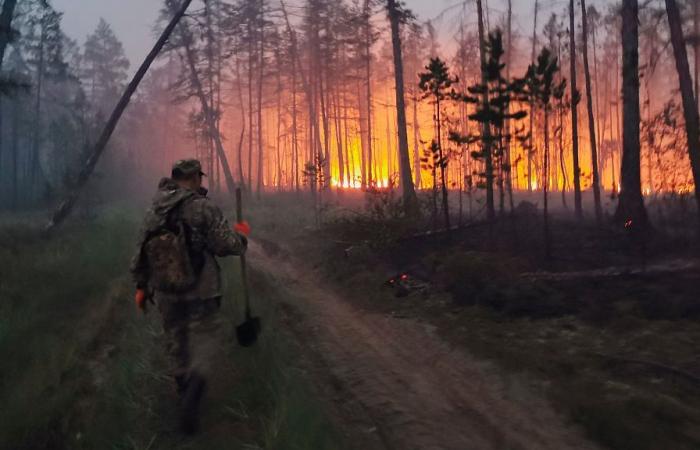Intense forest fires above the Arctic Circle released megatons of carbon into the atmosphere in June, according to European Union scientists.
Data from the Copernicus Atmosphere Monitoring Service (CAMS) shows that the majority of fires are burning in the Sakha Republic in Russia’s Far North.
These seasonal fires are moving north as climate change causes temperatures to rise in the Arctic. They ravage the tundra and boreal forests, releasing greenhouse gases from the carbon-rich soil.
Largest increase in extreme fires in past two decades
The Sakha Republic experienced much higher temperatures and drier conditions than usual for this time of year. This situation created the ideal environmental conditions for the outbreak of forest fires.
“Fire emissions in the Arctic have been at fairly typical levels over the past three summers, but we have observed that recent fires have grown as a result of warmer and drier conditions, similar to wildfires widespread in 2019 and 2020″explains Mark Parrington, a senior scientist at CAMS.
“This is the third time since 2019 that we have observed significant wildfires in the Arctic and it showed that this region of the northeastern Arctic has seen the largest increase in extreme wildfires in the last two decades.”
More than 160 wildfires had burned nearly 460,000 hectares of land as of June 24, Andrey Konoplevhe, the region’s deputy minister of ecology, nature management and forestry, was quoted as saying by the Russian state news agency TASS.
According to CAMS, total monthly carbon emissions (link in English) from these fires are the third largest in the last two decades, at 6.8 megatons of carbon. This year’s fires are just behind those of 2020 and 2019, which recorded 16.3 megatons and 13.8 megatons, respectively.
In the northern hemisphere, wildfires typically peak in July and August.
The Arctic is “ground zero” for climate change
THE climate change in the arctic do not only affect the local region. They are of major importance on a global scale because they impact the entire climate system of the Earth.
“The Arctic is ground zero for climate change and the growing risk of wildfires in Siberia is a clear sign that this critical system is approaching dangerous climate tipping points.”says Gail Whiteman, professor at the University of Exeter and founder of the non-profit scientific organization Arctic Basecamp.
“What happens in the Arctic doesn’t stay there – changes in the Arctic amplify global risks for all of us. These fires are a wake-up call for urgent action.”






